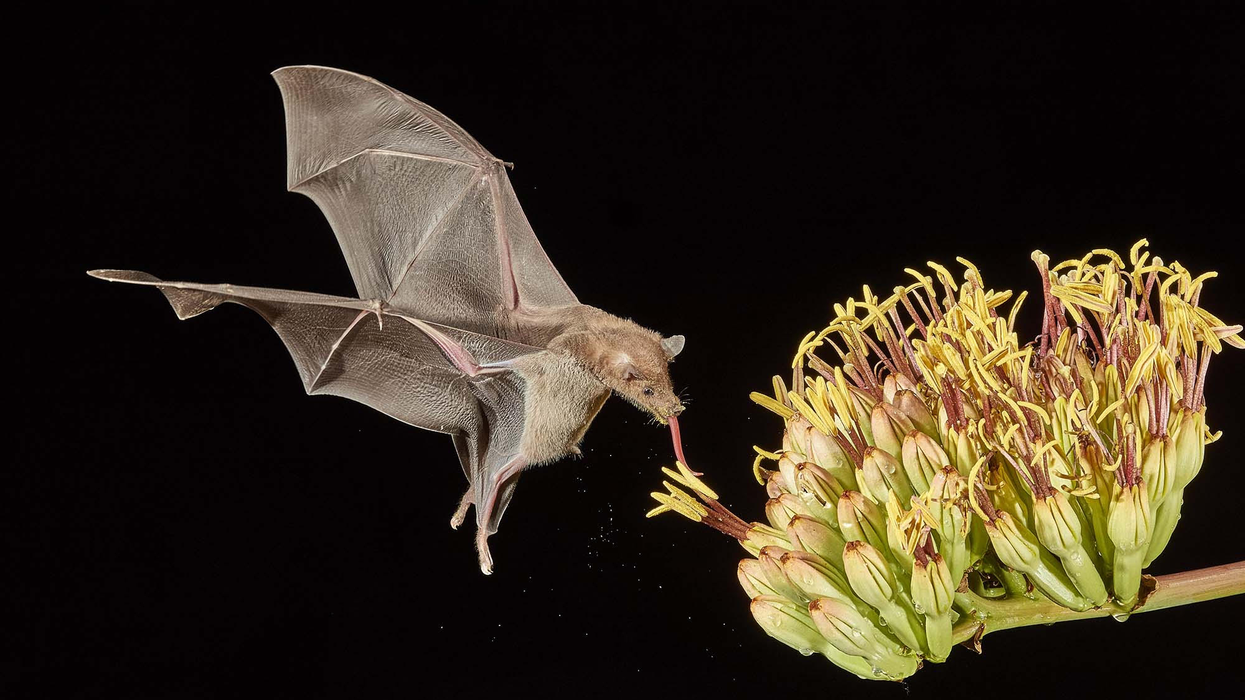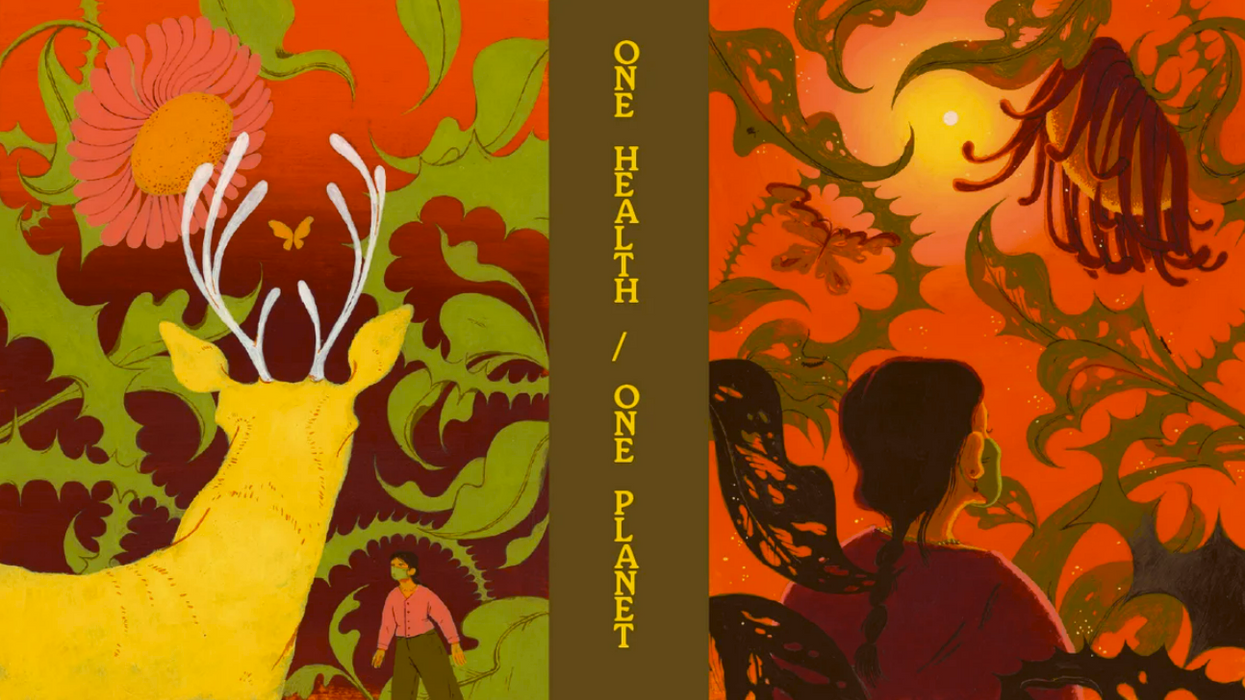No human has run a distance of 100 meters faster than Usain Bolt’s lightning streak in 2009. He set this record at age 22. But what will Bolt’s time be when he’s 105?
At the Louisiana Senior Games in November 2021, 105-year-old Julia Hawkins of Baton Rouge became the oldest woman to run 100 meters in an official competition, qualifying her for this year's National Senior Games. Perhaps not surprisingly, she was the only competitor in the race for people 105 and older. In this Leaps.org video, I interview Hawkins about her lifestyle habits over the decades. Then I ask Steven Austad, a pioneer in studying the mechanisms of aging, for his scientific insights into how those aspiring to become super-agers might follow in Hawkins' remarkable footsteps.
Following the Footsteps of a 105-Year-Old Sprinter
No human has run a distance of 100 meters faster than Usain Bolt’s lightning streak in 2009. He set this record at age 22. But what will Bolt’s time be when ...In this episode of Making Sense of Science, my guest is Raina Plowright, a leading researcher when it comes to how and why viruses sometimes jump from bats to humans.
For this podcast episode, my guest is Raina Plowright, one of the world’s leading researchers when it comes to how and why viruses sometimes jump from bats to humans. The intuition may be that bats are the bad guys in this situation, but the real culprits are more likely humans and ways that we intrude on nature.
Plowright is a Cornell Atkinson Scholar and professor at Cornell in the Department of Public and Ecosystem Health in the College of Veterinary Medicine. Read her full bio here. For a shorter (and lightly edited) version of this conversation, you can check out my Q&A interview with Plowright in the single-issue magazine, One Health / One Planet, published earlier this month by Leaps.org in collaboration with the Aspen Institute and the Science Philanthropy Alliance.
In the episode, Plowright tells me about her global research team that is busy studying the complex chain of events in between viruses originating in bats and humans getting infected with those viruses. She’s collecting samples from bats in Asia, Africa and Australia, which sounds challenging enough, but now consider the diligence required to parse out 1400 different bat species.
We also discuss a high-profile paper that she co-authored last month arguing for greater investment in preventing pandemics in the first place instead of the current approach, which basically puts all of our eggs in the basket of trying to respond to these outbreaks after the fact. Investing in pandemic prevention is a small price to pay compared with millions of people killed and trillions of dollars spent during the response to COVID-19.
Listen to the Episode
Listen on Apple | Listen on Spotify | Listen on Stitcher | Listen on Amazon | Listen on Google

Raina Plowright, a disease ecologist at Cornell University, is taking blood and urine samples from hundreds of animals and using GPS tags to follow their movement.
Kelly Gorham
One Health/One Planet: A Special Magazine Issue on Climate Change, Diseases, and Research that Could Save Us
This new magazine issue explores the work of innovative scientists who are taking single-aim at two overlapping problems: a warming planet and disease outbreaks.
In the spirit of rising to difficult challenges and erasing pointless divisions, we present One Health/One Planet, a single-issue magazine that explores how climate change and other environmental shifts are increasing vulnerabilities to infectious diseases by land and by sea. The magazine probes how scientists are making progress with leaders in other fields toward solutions that embrace diverse perspectives and the interconnectedness of all lifeforms and our precious blue dot.
This special issue is a collaboration among the science outlet Leaps.org, the impact and engagement company GOOD, the Aspen Institute Science & Society Program, and the Science Philanthropy Alliance.
The articles explore potential breakthroughs that are taking single-aim at the overlapping dilemmas of a warming planet and more frequent global pandemics. These predicaments, while certainly not new, have begun to seem more tangible and ominous in the midst of COVID-19, a tragedy that could very well repeat itself on an even more disastrous scale as deforestation and changing temperatures force new interactions among species, increasing the risk of disease transmission—including viral jumps to humans.
Going forward, we must do more to support scientific efforts that address a number of complex and interrelated areas, around which this magazine issue is organized: PARTNERSHIPS, NEW FRAMEWORKS, MICROBES, SPILLOVERS, ANIMAL & PLANT HEALTH, HUMAN HEALTH, INSECTS, SURVEILLANCE, CHANGING HABITATS and MODELING.
When historians of the 22nd century judge how we protected our own health, the health of our planetary cohabitants and the planet itself, the criteria will take account of, but extend far beyond the work and achievements of modern science. Their benchmarks will include how we met the need to engage diverse audiences—such as our farmers, historically underrepresented and underserved communities, conservationists, frontline medical workers, artists, politicians and communicators. We need their contributions in order to pursue the questions that are the most relevant, incisive and holistic. Only then can we be sure that we are allocating scarce resources toward the best possible answers. Nothing less will work against such steep challenges. Only with the broadest, most collaborative and transdisciplinary engagement can we truly hope to embrace the One Health/One Planet paradigm needed for our future salvation and prosperity.
This collection is available as a free, beautifully designed digital magazine for both desktop and mobile.
TABLE OF CONTENTS:
- PARTNERSHIPS IN ONE HEALTH/ONE PLANET: Conversation between Rajiv J. Shah and Louis J. Muglia
- FRAMEWORKS & APPROACHES: A Complex Problem Calls for New Strategies Plus the Wisdom of Our Ancestors
- MICROBES:
With Infections, We've Been Playing 'Pin the Blame on the Microbe.' Is It Time to Change the Game? - SPILLOVER:
Climate Change and the New Pandemic Age - EXCLUSIVE INTERVIEW WITH RAINA PLOWRIGHT, DISEASE ECOLOGIST AT CORNELL:
To What's Better than a Swift Response to Pandemics? Preventing Them in the First Place - ANIMALS, PLANTS & CROPS:
Which Ones Will Survive in a Changing Climate? - HUMAN HEALTH:
Staying Well in the 21st Century is Like Playing Chess - THE INSECT APOCALYPSE:
It Will Devastate Humans, but Science Can Keep Them Buzzing - SURVEILLANCE:
What Tools and Technologies are Needed to Monitor Zoonotic Spillovers and Optimize Disease Management - CHANGING HABITATS:
For Solutions to Climate Change and Infectious Disease, Researchers Go Back to the First Domino - MODELING:
Scientists Recommend a Multi-Disciplinary Approach to Predicting Outbreaks


